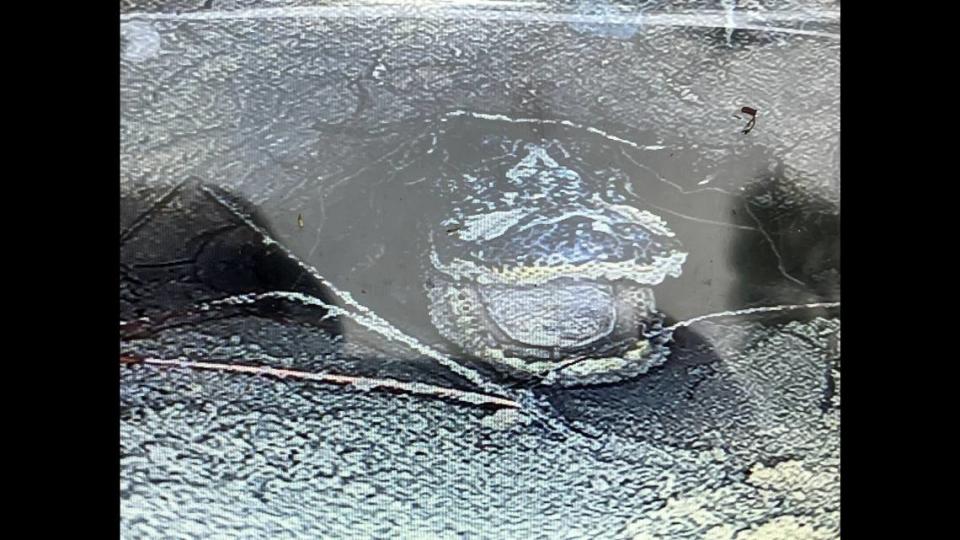Here’s where SC alligators go during the winter
Temperatures have begun to drop and alligator sightings in South Carolina have become more scarce.
Why is that? Where do they go?
This may be surprising, but the alligators don’t actually go anywhere.
Just as some warm-blooded animals hibernate during the winter as they endure frigid temperatures, alligators, which are cold-blooded reptiles, undergo a different form of self-preservation.

Much like snakes in South Carolina, neighboring alligators go into a state called brumation.
Once the temperatures begin to drop, alligators can no longer receive the heat they need from their environments. So, they cope by conserving their energy.
Brumation is similar to hibernation but is also different in many ways.
Both are dormant-like states that an animal will undergo.
For reptiles undergoing brumation, during this time, the creature’s metabolic and physiological processes will severely slow down to conserve its energy. This makes the alligator quite lethargic, according to the South Carolina Aquarium on alligator brumation.
“Alligators tend to stop feeding when the temperature drops below 70 degrees and become dormant at around 55 degrees Fahrenheit,” as specified by the Cajun Encounters Tour Co.
With hibernation, the warm-blooded animal will deeply sleep until spring and will not eat or drink until it awakens, whereas cold-blooded animals that brumate do not go into a deep sleep and will continue to drink to avoid dehydration. They will not eat during this time, according to PeeDee Wildlife Control Inc.
However unlikely it may be to see an alligator this time of year, it is not impossible.
“On particularly warm days, cold-blooded animals will often have periods of activity where they bask in the sun to absorb the warmth of the sun’s rays, even during brumation. So, it is possible to see alligators and other reptiles sunning themselves during brumation season,” wrote PeeDee Wildlife Control Inc.

“Brumation and hibernation both last four to five months, from November until March. During brumation, alligators create mud holes for shelter and warmth and typically only emerge on warm days to bask in the sun.”
Local alligators may lie in dens or burrows by riverbanks or lagoon edges where there are pockets of air for them to breathe or may even hide out in nearby culverts. Both of these options provide warmth and insulation for the cold temperatures outside.

Although this period may extend until March, alligators may begin to again become active during February.
When the alligators emerge during these warmer days, they will absorb what heat they can.

“Alligators have prominent ridges along their backs called scutes, bone plates that act as a heat conductor. The scutes contain blood vessels and as the sun warms the surface of the skin, the blood running through the scutes is warmed and distributed throughout the rest of the body, heating the alligator. When an alligator gets too warm while basking, he will open his mouth to dispel the heat,” according to the South Carolina Aquarium.
As menacing as they may look with their mouths open, it isn’t just that they’ve spotted a nearby snack, but rather because they are dispelling some of their excess heat.

